
Features
Business
Labour
Growing in the Green: Learning more means earning more
May 4, 2009 By Melhem Sawaya
Few things remain the same for very long. We live in a constantly changing world, with new circumstances within ourselves and from outside that impact our lives every day. Many of these circumstances are a boost to our existence; however, some are strong enough to pull us backward. These internal or external circumstances could even be the same to different people, while the effects are vastly different. Whether the circumstances are positive or negative depends on the situation we are in at that time.
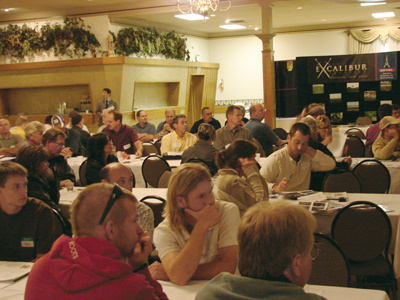
|
|
| Part of last year’s Grower Day audience. | |
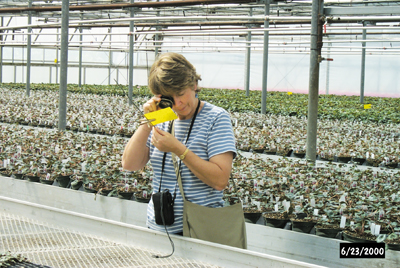
|
|
| A successful IPM program includes regular crop scouting. | |
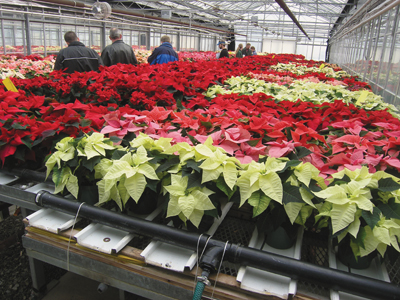
|
|
| Representatives from four leading breeders will be on hand to field questions on poinsettias and other crops.
|
Few things remain the same for very long. We live in a constantly changing world, with new circumstances within ourselves and from outside that impact our lives every day. Many of these circumstances are a boost to our existence; however, some are strong enough to pull us backward. These internal or external circumstances could even be the same to different people, while the effects are vastly different. Whether the circumstances are positive or negative depends on the situation we are in at that time.
How strongly we establish ourselves, our families, our businesses and our relations are major factors in how we face, adjust to and create opportunities out of every change. The key factor in having that strength is applied knowledge that produces results in the near future.
I have always believed there is a better way to do things. If I am doing a certain procedure the same way year after year, I get the feeling I am missing something – an improvement of some sort – with what I am doing.
To find that small or big factor that can improve a certain process takes the drive and the unquenched thirst for knowledge and then applying it. By no means is my drive just to change things as much as it is to find improvements.
Acquiring new knowledge in performing a certain process does not mean that the old way is wrong. I will definitely not change the old method until I apply the new information and prove its advantage.
Whether the new information is better or not, we always learn by trying different things and, in the process, our bank account of knowledge increases.
Knowledge is one of the noble commodities that no one can take away from us. It is a treasure that proves useful in everyday life and especially in our field of work where knowledge is the strongest commodity we possess, as long as we apply it.
By no means am I trying to get philosophical, but the reality is that successful people are always seeking ways to improve their status. It comes down to acquiring knowledge and applying it in a prudent way.
There are many sources for acquiring knowledge in our industry but nothing can take the place of first-hand, face-to-face speakers in an informal setting where communication is wide open.
This is why Greenhouse Canada magazine, about 15 years ago, felt so strongly about the usefulness of a grower day that they began hosting a day of pre-sentations to share useful, practical information that would increase our knowledge bank. Yes, some of us will acquire more from a speaker than others. However, I can guarantee that anyone who does not attend meetings such as Greenhouse Canada Grower Day or the Canadian Greenhouse Conference, or the like, will not add a thing to their bank of knowledge.
In my almost 32 years in the greenhouse industry, I have seen many operations grow and flourish while some got weaker and disappeared. One thing I noticed very distinctly is that the owner/manager of an operation who acted like they knew it all and didn’t thirst for new information they could directly apply is not in business any more, even though he was a top grower less than 10 years ago.
The information age is moving fast and, if you don’t keep up, you’ll miss the boat.
Yes, this is a “commercial message” to attend next month’s Greenhouse Canada Grower Day (June 17 in Delhi, Ontario; visit our website at www.greenhousecanada.com for registration information). Benefits from attending meetings such as this include the information learned from the sessions, the chance to network with other attendees, and the opportunities to talk to the experts… all of which you can draw upon in your daily operations.
I was fortunate that my first employer believed in encouraging employees to improve themselves by acquiring knowledge through different meetings, courses and workshops. Many of us capitalized on these opportunities. It has obvious benefits, most employers well understand, for the company, too.
Greenhouse Canada Grower Day is not a big money-maker. If it wasn’t for the generosity of companies allowing their experts to come and share their knowledge with us, the event would not happen.
I started this Grower Day at the German Hall in Delhi, Ontario, in 1986-87 when I worked at Fernlea Flowers and then continued it with the magazine. I feel sorry for those growers who don’t understand the importance of perpetual learning as the foundation for any successful operation, and don’t bother with workshops or conferences.
I got carried away with my “supposed to be” very short introduction to this year’s Grower Day, but I have seen the advantages of a big day like this and how it can be one factor in your business success. We don’t have to travel far to obtain useful information. Most of the time, it is virtually at our doorstep, and is just as good – or often better – than the information gained from across “the pond” or over the border.
This year’s program is again being held at the German Hall in Delhi with the same casual environment that gives you the chance to ask questions. Also, you have the opportunity to interact with colleagues while enjoying the facility’s signature lunch of chicken, cabbage rolls, sausages, etc.
The day will empower us with knowledge about production of some specific crops, retailing ideas and hands-on experience with IPM in which biologicals are an integral part of the program. Also available will be essential marketing information that is guaranteed to boost sales. We will also look at the state of horticulture across the globe.
Genetics geared for a better product will surely interest everyone and, new for this year, a panel of top poinsettia breeders will address the challenge of low-energy poinsettia production and what to watch for. (If you have some poinsettia questions, this panel has all the answers.) Last, but not least, come and learn the critical factors that make or break zonal and ivy geraniums.
Here is a more detailed description of the topics:
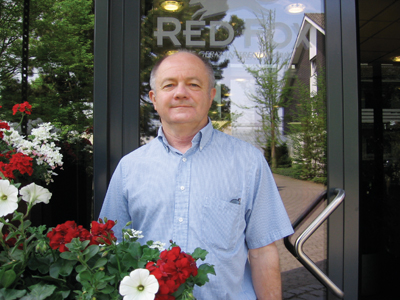
|
|
| Dr. Allen Hammer of Dummen.
|
ABCs OF SUCCESSFULLY GROWING RIEGER BEGONIAS
(Dr. Allen Hammer, Dummen U.S.A.)
Rieger begonia has been taking on a new use for the last five to six years. It is still used indoors as a potted plant but, on a much larger scale, it is a bedding plant for hanging baskets. Allen will share with us the ABCs of Rieger begonias, including propagation, photoperiod, timing, fertilization, and much more. This is a very profitable crop when it is done right with the proper timing. This talk is for those who never grew Rieger begonia as a bedding plant and also for those who have been growing it for many years.
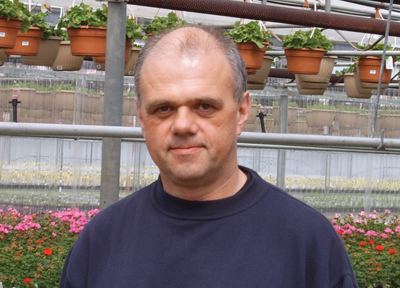
|
|
| Albert Grimm, head grower at Jeffery’s Greenhouses of St. Catharines, Ontario.
|
OUR EXPERIENCE WITH IPM
(Albert Grimm, Jeffery’s Greenhouses)
As production manager at Jeffery’s, Albert has a passion for the use of biologicals and has been practising this passion in a practical way for many years now. Albert will share his experience without holding back on any positive and negative information. Along with sharing how chemicals will enhance, or hinder, biologicals, he will cover basic steps on how to have a successful Integrated Pest Management program (IPM). Many years of experience will be shared with you.
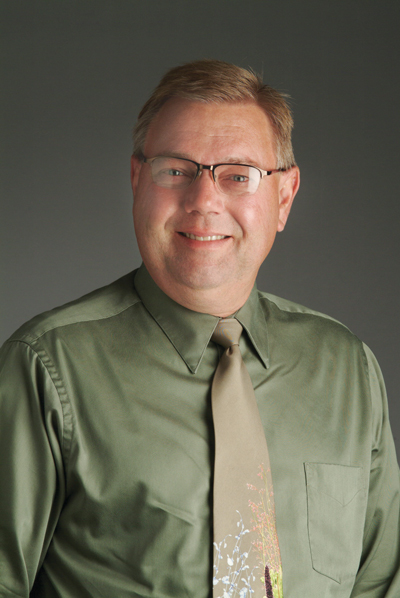
|
|
| Jerry Gorchels of Ball Horticultural.
|
KNOWING YOUR CUSTOMER
(Jerry Gorchels, Ball Horticulture)
It is one thing to produce good quality products. But it is just as important, or even more important, to know who is buying your product. We must stay on top of these dynamic and changing market demands. It is difficult to second-guess our customers as to what will or won’t sell. We will look at the types of customers coming into our garden centres, some very recent survey results, trends that will surprise you, and creative ways to help sell more products. Jerry’s goal is for you to take home at least two tips on how to add to the bottom line.
POINSETTIA PANEL POINTERS
(Dr. Allen Hammer of Dummen, Jack Williams of Ecke Ranch, Dr. Harvey Lang of Syngenta, and Stefan Reiner of Selecta)
Each of these experts will begin with a brief presentation on the advantages of their varieties and how they fit with low-energy poinsettia production programming. The floor will then be open for questions or clarifications. Many times we offer talks that cover a lot of information, but they may not cover everything. This is your chance to ask questions of these leading experts who represent 99 per cent of the poinsettia varieties. The Q-and-A component will be the key part of this session.
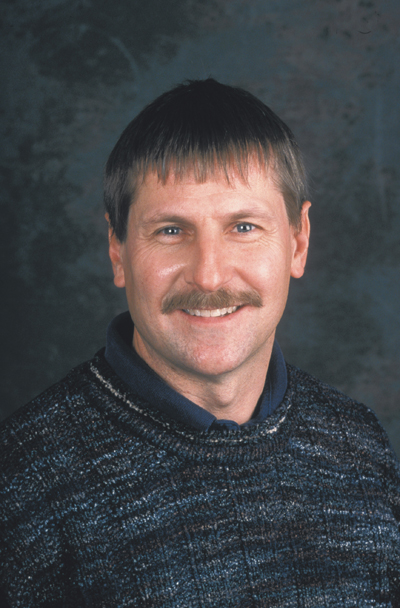
|
|
| Dr. Harvey Lang of Syngenta.
|
SUCCESSFUL PRODUCTION OF ZONAL AND IVY GERANIUMS
(Dr. Harvey Lang of Syngenta)
Geraniums are still the largest crop in potted bedding plants. Harvey will cover the production techniques of how to end up with a crop that surpasses any on the market. He will offer recommendations on how to propagate cuttings, program crops, fertilize, and avoid crop disasters he has encountered.
This year’s Greenhouse Canada Grower Day is guaranteed to give every partici-pant new tools to achieve higher profit margins and, hopefully, a better quality of life.
Milhem Sawaya of Focus Greenhouse Management is a consultant and research co-ordinator to the horticultural industry. Comments on this or any other article are always welcome; please e-mail mel@focusgreenhousemanagement.com, or visit www.focusgreenhousemanagement.com or www.sawayagardentrials.ca.
Print this page